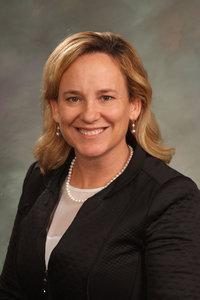In this Capitol Report:
Legislature Convenes: Democrats Control Both House and Senate
The First Regular Session of the 72nd General Assembly opened this morning with ceremonies, swearing-in of newly elected lawmakers, election of presiding chamber leaders and speeches by the chambers’ four majority and minority leaders.
The House elected Majority Leader KC Becker (D-Boulder) to be the new Speaker. The Senate elected Senate Minority Leader Leroy Garcia (D-Pueblo) to be the new President.
House Minority Leader Patrick Neville (R-Franktown) continues in his position. In the Senate, Majority Leader Chris Holbert (R-Parker) became the Minority Leader.
Below are excerpts about business issues from each prepared speech by each the four leaders. Click on their names to link to the full prepared speech:
Together, we are driven to build a fair economy that expands opportunity for all, to invest in our future, and to protect the Colorado Way of Life.
###
We’ve gone from a deep recession to a thriving state. But the advantages of Colorado’s growth and economic prosperity of the last 5 or 6 years haven’t been felt by every corner of our state.
Unemployment statewide is low and the President might be tweeting about the stock market – at least when it’s up – but many of our neighbors still find it hard to get ahead and they struggle with the rising cost of living.
Hardworking families are trying to save for the years down the road or even for the coming months.
And they are often one tragedy or paycheck away from financial distress.
That means we need to give them the tools they need to get ahead.
Last session, we passed bills to help Coloradans with the high cost of child care, increase the construction of affordable housing, and connect more Coloradans to the good, high-paying jobs our economy is now producing in great numbers.
But it’s not enough.
We are a state built on the value that people who work hard should be treated fairly.
That means finally passing paid family leave because no one should have to risk financial ruin – or lose their job – to care for a new child or sick relative.
It also means that women and people of color should be paid equally for equal work.
We are committed to fighting for every Coloradan to be treated with the dignity, fairness and the respect they deserve.
###
Here at the Capitol, when Republicans find policies that are consistent with the lessons of history, we advocate for them; when public policy ignores these realities, we oppose it because we want policy that works for people; we want a better life and a better future for everyone.
For example, if the Majority insists on passing an expensive and involuntary family leave program that will cost taxpayers hundreds of millions of dollars, one that is ripe for abuse and damaging to business, we’ll oppose it because we know, and history teaches, that such a program will cost more than planned and be less efficient than planned, even as it makes Colorado less affordable for single moms, working families, and young people joining the workforce.
Similarly, this past November Coloradans said “no” to increased regulation of the oil and gas industry, and no wonder:
- We already have effective safeguards in place,
- We already enjoy lots of industry/agency cooperation,
- And people understand the critical role played by industry in providing jobs, healthcare, and a future for them and their families, and
- Taxes paid by this well-regulated industry fund teachers, troopers, and transportation.
Increased regulation would not only contradict voters’ expressed will, it would also make Colorado less affordable, and thus hurt everyone – that’s why we’ll oppose it, should it be proposed.
The Denver Post recently published the results of a poll they’d conducted with millennials. Being a millennial myself, I was interested in what they had to say. The gist of the story was this: young professionals in Colorado are waiting to have children because they can’t afford them; the same holds true for their dream of owning a home.
Single moms, working women and families in general groan under the burden of health care costs. Some of these costs are artificial because people are forced to buy coverage they neither need nor want, while others struggle with a system that lacks transparency and competition. We must develop and insist on creative market-based solutions that will work as opposed to big government ones that won’t. We must insure transparent pricing, more consumer choice, and voluntary participation. It’s not fair or compassionate when people are hurt by politicians who promise progress but deliver price increases.
Similarly, investing in transportation, that is, in roads and bridges, will improve our quality of life: it will cut down on commute times, make living outside cities more accessible and affordable, and it can be done by spending money we already have.
Ninety-seven per cent (97%) of commuters use our roads and bridges, and that’s where we should invest our transportation dollars. There’s no reason a significant portion of our budget can’t be spent on transportation, especially at a time when our coffers are overflowing. Coloradans told us this past November they don’t want taxes raised to pay for the transportation projects we already have money for.
On a related note, Coloradans can’t afford to pay thousands of dollars more for the vehicles they use to work, take children to school, and vacation – but new environmental regulations will raise the price of both old and new cars. As surely as day follows night, these regulations will raise prices even as they do little to improve our environment.
The drip, drip, drip of paying for basic needs is draining Coloradans of the optimism and hope that should be natural for residents of this great state. It causes others to leave, and yet others to delay having children. The bills we debate this session will directly impact Colorado’s affordability, and if history teaches us anything, it teaches that government programs bring with them the very expensive baggage of unintended consequences.
Sadly, this baggage is relevant to the debate about “injection sites”. Some well-intentioned people would have you believe this is a compassionate approach to a complicated problem. Fact is, the causes of opioid addiction often are complicated. Yet Deputy Attorney General Rod Rosenstein has pointed out that such sites violate federal law, and more importantly, they create serious safety risks for workers and neighborhoods, even as they ‘normalize’ self-destructive behavior. So-called safe injection sites are not the answer. Asking the taxpayer to foot the bill to continue addiction is a bad idea. Subsidizing the slow-motion suicide of our citizens is wrong. We can and must do better.
When it comes to Education, the founders of our state thought it so important that they required it to be publicly funded. Over the past several years, we’ve funded a lot. But when you spend or invest money, it’s only fair to expect some return. We’ve made a great financial investment, but we’re not getting a great return, especially in the minority community. According to the Department of Education,
- Local school districts receive on average slightly more than $15,000 per child per year.
- An average class of 23 students costs taxpayers about $345,000 per year.
- If those students began first grade together, taxpayers would have invested $4,140,000 in them by high school graduation.
- Yet according to the Department of Education’s own data, twenty-one percent (21%) of those students won’t graduate, and nearly 40% of those that do are unprepared to take a freshman class in college and must instead take remedial courses in math and English.
- Minority 4th grade student math success doesn’t reach 19% – that is, over 80% don’t meet expectations.
- 79% of African-American and 71% of Hispanic high school graduates need remediation before starting college.
- In a room where the likeness of Barney Ford is featured, we should demand better.
- Yet with far less money, a more diverse student population and far fewer resources, charter schools do better.
- In the past 8 years (2010-2017), Colorado student enrollment has increased 7%, the number of teachers employed has increased 10% – but the number of principals and assistant principals has gone up 24%
- What can we do?
- Get rid of costly state rules that force schools to hire administrators instead of teachers
- Ask schools to refocus their efforts on academics and job training, and don’t ask them to do so many other things
- Encourage districts to offer better pay for great teachers
- Make it easier to remove bad teachers
- Offer more educational choices for students and parents. In every other market – be it cellphones, cable TV, or automobiles – competition and consumer choice result in better products and more value for money. The same can happen in education.
- Children deserve hope, but our status quo system robs them of it.
The time has come for us to have an open mind to new approaches to education because it is obvious that what we’ve been doing isn’t working.
We will work with Democrats on any bill that offers real hope for educational success.
###
In conclusion, we have choices to make:
- Will we expand state government at the expense of the average citizen or look for ways to lower the cost of doing business in Colorado to make Colorado more affordable?
- Will we plant fiscal bombs into the budget in the form of costly new programs, burdening us and our children for decades or develop more free enterprise oriented solutions?
- The bigger government approach doesn’t work. It creates more inequality, more dependence, and more social division, and if you doubt me on this, just look to the west where California now has the highest rate of poverty in the nation. Look to Illinois, which is on the verge of bankruptcy.
###
###
 Make no mistake – Colorado is growing and prospering, but not everyone feels that growth and prosperity.
Make no mistake – Colorado is growing and prospering, but not everyone feels that growth and prosperity.
Too many cannot afford the healthcare they need.
Too many have died at the hands of opioids, and many more struggle with drug abuse and addiction.
Too many earn lesser pay for equal work.
Too many children in Colorado do not have equal access to a quality K-12 education.
And too many are saddled with tens of thousands of dollars of student loan debt.
But Coloradans do not give up in the face of challenges like these, and neither can we. Colorado is a special place – it is a state filled with people who innovate and find solutions, and I am absolutely confident that this body will be able to find many of those solutions.
Solutions that build on the steps we have taken to address the opioid epidemic by making greater investments into programs with a proven record of success.
Solutions that ensure student loan servicers do not take advantage of students in Colorado.
Solutions that help lower the cost of healthcare by increasing price transparency for prescription drugs.
And solutions that show Colorado can be a state that not only creates a booming business climate and grows good-paying jobs, but one that also values workers and pays them fairly.
I know each member of this Senate is different. And while we may disagree and debate about the solutions to the issues facing our state, we cannot allow our political differences to get in the way of our shared goals: to serve with honor and to improve the lives of hardworking Coloradans.
We – Democrats and Republicans – can accomplish these goals if we put our egos aside. I have no doubt that all of us can agree that we are most successful when we work together.
So, let us today mark a new day for the Colorado State Senate. A Senate where we return to our tradition of honor, trust, and integrity.
A Senate that has an unwavering commitment to take care of every Coloradan, no matter where they live.
Political parties do not determine what improves the lives of Coloradans. Good policy does, and no one party has a monopoly on good ideas.
That is why we should be willing to work with anyone – regardless of party – who has a solution to the serious issues that Colorado faces.
If we are willing to work hard and collaborate, we can empower every Coloradan to live their American Dream – just like my family and so many families in this room have been able to do – and ensure we pass on a better Colorado to our children and grandchildren.
It is a big task, but I know we can do it.
So, let’s get to work.
Senate Minority Leader Holbert
###
 Mr. President, I believe that we here in the Senate, have a unique opportunity over the next two hundred and thirty-nine session days to demonstrate effective leadership, to honor the will of the People in both who and what they supported last November.
Mr. President, I believe that we here in the Senate, have a unique opportunity over the next two hundred and thirty-nine session days to demonstrate effective leadership, to honor the will of the People in both who and what they supported last November.
For example, fifty-five percent of those who voted last November agreed with their neighbors, family, and friends who work in the Colorado oil and gas industry. They recognized the irreplaceable value of severance taxes to their schools. They embraced the importance of a well-regulated industry that accounts for, by some estimates, over $30 billion dollars of positive annual economic impact here in Colorado.
###
Mr. President, the Minority Caucus looks to you, your even hand, and your experience, to be the gauge for how far left or right we might journey over the next two years. For the past four sessions, Senate Republicans served to balance House Democrats and vice a versa. Most bills, a high point of 62% of all bills introduced in 2017, passed through both chambers. Governor Hickenlooper vetoed just two bills that year. Nothing too far left or right made it to his desk. And, it was that way for six of the eight years that he served as our Governor.
###
What will Republicans do over the next two years? We will stand for this Constitution and we will stand with the People who gave it to us.
We will continue our efforts to fund roads and bridges with existing revenues. We have heard from Governor-elect Polis that he does not support new proposals for a sales tax increase. We agree with him. He has stated that he does not support further bonding proposals. On that, we disagree.
Last year, Senate Bill One proposed bonding as a solution to an estimated nine billion dollars of transportation infrastructure need.
Initially, Senate Bill One received zero bi-partisan support here in the Senate. Ultimately, however, the amended version of Senate Bill One received unanimous support in this very chamber.
When we gathered with Governor Hickenlooper in the Big Thompson Canyon for the signing of Senate Bill One into law, we celebrated that significant bi-partisan accomplishment. We continue to credit the good Senator from District 19 for her tenacity, leadership, and patience in her effort to amend Senate Bill 18-001.
The amended version of the bonding proposal from Senate Bill One is now law and we support the opportunity for the People of Colorado to consider that option on their ballot this November. No, it is not a duplication of Proposition 109, which failed last November. It is disappointing to hear that the Majority may intend to remove that bonding opportunity from statute with new legislation this session while Senate Republicans support the opportunity for voters to answer that different bonding question.
Senate Republicans will continue to support additional funding for roads and bridges. For the past two years, we have called on at least three hundred million dollars of General Fund revenue for roads and bridges. We have advocated that using that amount from the General Fund as the revenue source to pay for bonding. And, we have invited feedback by asking those who disagree with our proposal, if not $300 million per year for bonding, then how much for how long?
This session, like the last, it appears that tax revenues will exceed the prior year by over one billion dollars. Some estimates put that additional, new, revenue amount at one point two billion dollars.
To that point, Senators Scott and Cooke will introduce a bill to add three hundred thirty-six million dollars for roads and bridges. That funding would enhance the amount already provided by Senate Bill One from last session.
To K-12 education, we propose allocating that same amount, three hundred and thirty-six million dollars to buy down the so-called budget stabilization factor, previously known as the negative factor. That IOU was written to Colorado’s 178 school districts in 2009. The amount of that IOU currently rests at six hundred seventy-two million dollars. Our proposal for three hundred and thirty-six million would cut that in half this year.
It’s time that we take a bold step in allocating equal portions of that 1.2 billion dollars additional revenue to buy down the negative factor and improve Colorado roads and bridges.
To address another chronic K-12 education issue, Senator Hill will bring legislation to reduce compliance requirements for the 147 Colorado rural school districts. How many times have members of the House or Senate Education Committees heard from a rural school principal who drives a school bus, shovels the sidewalks, plows the parking lot, and coaches the team before he or she sits down to write a grant request and complete the numerous reports that we require of him or her? Colleagues, with every dollar strained to meet the growing needs of Colorado students and their teachers, it’s time for us to get government out of the way by allowing them to teach more and administer less.
During my first session working here at the Colorado Capitol, I became familiar with the Sunrise Application process then used by the Department of Regulatory Agencies (“DORA”). That process was developed by the late Representative Jerry Kopel, a Denver Democrat, as a means to limit the growth of government. That application was required of any group of previously unregulated businesspersons seeking to be regulated through registration or licensing.
Back in 2002, the Sunrise Application started by asking the “what is the problem that you’re trying to solve. And, second, should government be involved in solving that problem? Too often, in my opinion, the second question defaults to how government will be involved in solving that problem. For Senate Republicans, we remain open to the possibility that government should not, in certain cases, presume to be the solution; that sometimes, the private sector deserves space to be the solution.
Such is the case when we consider an expensive and inflexible requirement that employers provide paid family leave. Such a benefit when provided on a voluntary basis could make certain employers more competitive and attractive to potential employees. However, requiring Colorado employers to provide such a benefit will, by default, make the cost of employing a person more expensive.
We understand the desire to help, but this is an example of where requiring such expense is not the answer. Yes, encourage employers to offer such a benefit, allow them to be unique and competitive in the marketplace, provide some incentive to employers for offering such a benefit.
But, we urge you colleagues, don’t require conditions that will ultimately lead to government forcing one company after another out of business, one job after another to no longer exist.
###
News Media Coverage
For news media coverage of the opening of the legislature, read:
“Opening day of Colorado Legislature: Wide chasms emerge on paid leave, drilling regulations, health care,” by Ed Sealover, The Denver Business Journal, January 4th.
“President Garcia calls for unity, collaboration as Colorado state Senate opens,” by Marianne Goodland, Colorado Politics, January 4th.
“Speaker Becker: Economy, climate, guns top 2019 priorities for Colorado House Democrats,” Conrad Swanson, Colorado Politics, January 4th
“Top Colorado Senate Democrat signals more bipartisan approach than House counterpart on opening day,” by Nic Garcia and Anna Staver, The Denver Post, January 4th.
“Thought Leader: K.C. Becker bringing nuanced background, views to speaker’s role,” by Ed Sealover, The Denver Business Journal, January 4th.
“Colorado’s General Assembly, controlled by Democrats, opens for business with a focus on the environment, health care and economy,” by Anna Staver and Nic Garcia, The Denver Post, January 4th.
“Business groups on defense as Democrats get stronger grip on Colorado General Assembly,” by Aldo Svaldi, The Denver Post, January 3rd.
“These 6 issues are going to be front and center at the Colorado General Assembly in 2019,” by Nic Garcia, The Denver Post, January 3rd.
2019 Legislation Will Impact Colorado Employers!
The 2019 Legislative Session commences on January 4, 2019 and we anticipate many pieces of legislation to be introduced that will affect employers of all sizes across the state. Several of those bills will fall within the labor and employment policy area including another legislative effort to implement a statewide family and medical leave insurance program (FAMLI).
Over the last few months, the Colorado Chamber has formed a working group to discuss and prepare for the 2019 FAMLI legislation. If you are interested in participating in this working group, please contact Loren Furman at [email protected] so that we can include you at the next meeting.
In regard to other labor & employment legislation, the Council will be reviewing and taking positions on each of those bills as they move through the legislative process. We strongly encourage your participation in the upcoming Labor & Employment Council meetings so that we can effectively represent your company’s interests on these issues.
The Council will meet at noon – 1:00 pm in the Colorado Chamber conference room on the following dates during Session:
- January 23, 2019
- February 20, 2019
- March 20, 2019
- April 10, 2019
Please contact Loren Furman at [email protected] with any questions.
Thank you!
Sign up to Sponsor a Council Meeting
|


